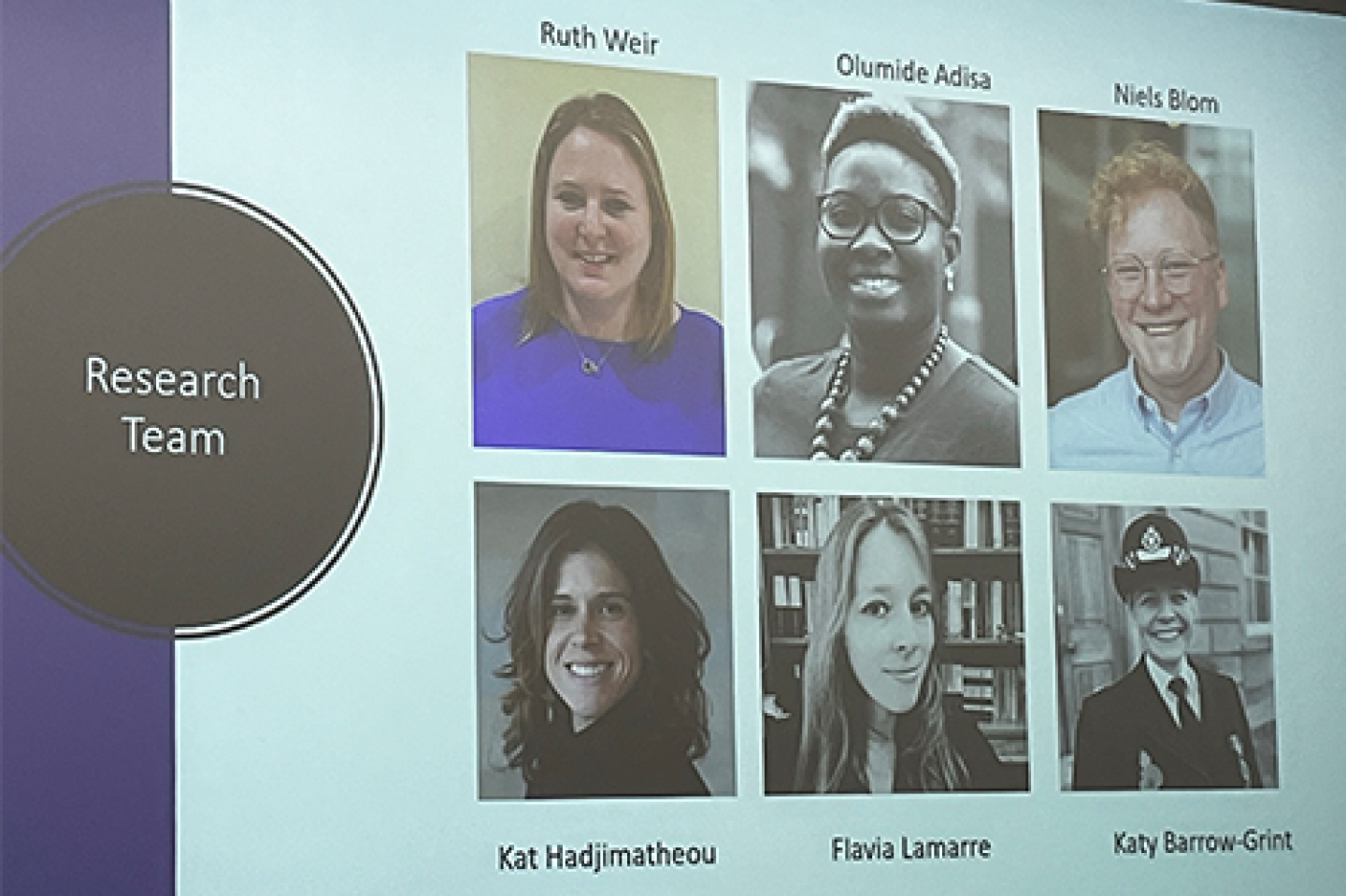The VISION Adolescent Domestic Abuse conference highlighted key issues in supporting adolescents around this specific type of abuse, with speakers from Thames Valley Police, Metropolitan Police and Islington Borough Council.
By Katie Hoggan (Communications Officer (Corporate)), Published
Children who live in a home where domestic abuse takes place were recognised for the first time as victims in their own right with the new legislation brought in by The Domestic Abuse Act 2021. But this legislation does not extend to children experiencing abuse in their own relationships.
Academics, practitioners, and policymakers visited City, University of London to share research, policy and practice on this often overlooked topic at the VISION Adolescent Domestic Abuse Conference 2024.
The conference was hosted by The VISION Consortium, a multidisciplinary team of researchers and experts based at seven universities including City and Public Health Wales. The event introduced a programme of work to address this specific type of abuse, defined as physical, emotional, and/or sexual abuse that occurs between young people who are, or were, dating.

This new work draws on existing collaborations between City, Thames Valley Police, the Domestic Abuse Commissioner’s office, the Home Office and the charity SafeLives which forms the interdisciplinary Adolescent Domestic Abuse Working Group.
Speakers at the conference included representatives from Thames Valley Police and Metropolitan Police as well as the charities Women’s Aid, SafeLives and Refuge. Academics from City and other universities gave presentations on vital studies and research on adolescent domestic abuse.
Dr Ruth Weir, Senior Research Fellow in Criminology and VISION member, chaired and introduced the event. She said:
"Today’s conference introduced a new programme of work to carry out a systematic rapid evidence review and undertake new research on the topic, including participatory research with young people. We used this work to identify gaps in the knowledge on domestic abuse among teenagers to enable us to prioritise and design future collaborations and research with the Adolescent Domestic Abuse Working Group (ADAWG).”
According to research by the charity SafeLives, teens start to experience abuse from a partner from as young as 14, leaving a gap in legislative support for those under the age of 16.
Speaking at the conference, Katy-Barrow Grint, Thames Valley Police Assistant Chief Constable, said more should be done to support this age group.
“Responding to adolescent domestic abuse is problematic for the agencies involved such as policing and social care as well as third sector organisations and social enterprises because of the limited staff with experience and because of the limited funding," she said. "Without policy or legislation to support that age range around domestic abuse, it’s very difficult to progress this.
Dr Ruth Weir chaired and introduced the event. Other speakers included:
- Katy Barrow-Grint, Assistant Chief Constable, Thames Valley Police
- Louisa Rolfe OBE, Metropolitan Police and National Police Chief Council lead for Domestic Abuse
- Aisling Barker, Islington Borough Council
- Professor Christine Barter, Co-Director of the Connect Centre for International Research on Interpersonal Violence and Harm, University of Central Lancashire
- Janelle Rabe, Centre for Research into Violence and Abuse, Durham University
- Jen Daw and Sally Steadman South, SafeLives
- Hannah Williams and Sarah Davidge, Women’s Aid
- Dr Shilan Caman, Karolinska Institutet, Sweden
- Dr Kirsty McGregor, Loughborough University.
A comprehensive list of support services and local police forces can be found here.
Find out more about the Department of Sociology and Criminology at City, University of London.



